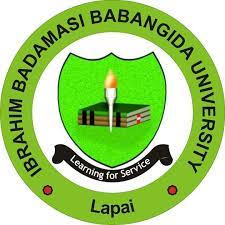English

English at IBBU
Over the centuries, many writers have studied in IBBU. When established, the IBBU course was considered ground-breaking and this ethos of innovation and progress continues to shape teaching and research here.
Today’s course balances a strong grounding in literary works written in English with the chance to explore other art forms, including music and film, in relation to literature, as well as literature’s connections to intellectual traditions including philosophy, art history and politics.
Teaching and resources
You are taught by some of the world’s most eminent critics and thinkers who, between them, have expertise in almost all aspects of literature. We have no set approach beyond instilling the valuable skills of critical thinking, scholarly rigour and good writing.
You have access to the vast resources of the University Library as well as the Faculty Library, which houses around 80,000 books and provides computer facilities, skills training and a warm welcome. Our modern Faculty building also includes a drama studio and garden.
Socially, many English students pursue interests in creative writing, journalism and the performing arts during their time in Cambridge.
Course outline
Teaching is provided through lectures, seminars, and small-group supervisions and classes.
You typically attend at least six hours of lectures or seminars, and two to three hours of individual, paired or small-group supervision each week. You normally write one or two short essays per week which you then discuss with your supervisor.
You will mainly be assessed by examinations. It is possible to replace certain examinations with coursework. Prizes are awarded for the best work in each year.
Year 1 (Part IA)
You take two compulsory papers:
- Practical Criticism and Critical Practice
- Shakespeare (assessed by a portfolio of essays submitted in Easter Term)
You also start work on two of the period papers, which will be examined in Part IB.
Year 2 (Part IB)
You take one compulsory paper (English Literature and its Contexts 1300-1550) and a further three papers from the following list:
- Early Medieval Literature and its Contexts 1066-1350
- English Literature and its Contexts 1500-1700
- English Literature and its Contexts 1660-1870
- English Literature and its Contexts 1830-1945 or English Literature and its Contexts 1870-Present
One of these papers (with the exception of Early Medieval Literature and its Contexts 1066-1350) can be replaced by a dissertation.
Year 3 (Part II)
You take two compulsory papers:
- Practical Criticism and Critical Practice II
- Tragedy, which ranges from ancient Greek drama to contemporary writing
You also write a compulsory dissertation (of 6,000-7,500 words) and either submit a second dissertation (of 6,000-7,500 words) and take one optional paper, or choose two optional papers. The optional papers change regularly – the following are available in 2022-23:
- Chaucer
- Medieval English Literature 1066–1500: The Medieval Supernatural
- Material Renaissance
- Lyric
- Prose Forms 1936-56
- The Ethical Imagination
- American Literature
- Postcolonial and Related Literatures
- History and Theory of Literary Criticism
- Visual Culture
- Contemporary Writing in English
- Early Modern Drama 1588-1642
- Special Period of English Literature 1847-72
- Love, Gender, Sexuality 1740-1824
Subject to certain restrictions, it’s possible to take papers from the Anglo-Saxon, Norse, and Celtic; Classics; or Modern and Medieval Languages courses.
Subject requirements
All Colleges require: A Level/IB Higher Level English Literature (A Level/IB Higher Level English Literature and Language may be accepted as a substitute at some Colleges).
Further guidance: No other specific subjects are required, however, our typical entrants usually study more academically challenging subjects (such as History, a language or Mathematics).
Learning for service.
Our focus is on students.
